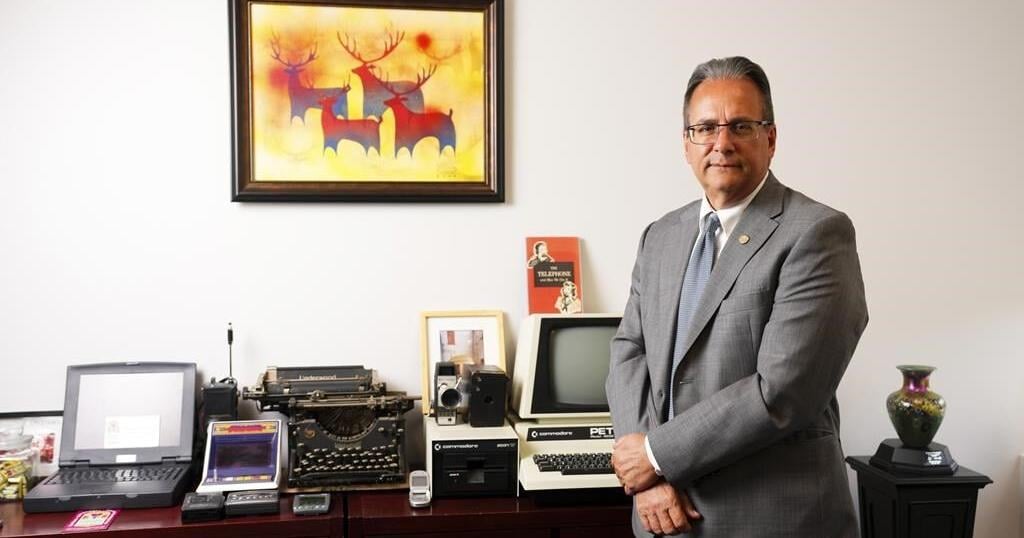OTTAWA – When students return to Catholic schools in Ottawa this week, they will be able to use artificial intelligence to help solve math problems and create essay outlines.
Their teachers, too, can turn to AI to generate lesson plans, adjust content to a student’s specific needs, and give feedback on assignments.
The Ottawa Catholic School Board is paving the way for AI use in the classroom with newly developed AI guiding principles for all grade levels, at a time when many school boards across Canada are grappling with how to responsibly embrace the ever-evolving technology.
The board says it wants to strike the right balance in ethical use of artificial intelligence – including generative AI – while also teaching its 45,000 students about digital literacy.
“It’s extremely important because AI is part of just about everything every student and every teacher will be encountering in their life,” director of education Tom D’Amico said in an interview.
One expert said that, to his knowledge, no other school board in Ontario is taking such concrete steps to develop policies on AI use.
“I’ve been interacting with a lot of Ontario school boards and the Ministry of Education in the last six months, and everyone is pointing to (the) Ottawa (Catholic School Board) like, ‘Well, I think they’ve really got their act together,'” said Mark Daley, Western University’s chief artificial intelligence officer.
The board’s students will be allowed to use AI to help develop ideas for a project or an essay, summarize a complex document, or create illustrations to jazz up a presentation.
For students in kindergarten to Grade 6, the use of artificial intelligence will be primarily teacher led and generative AI tools such as ChatGPT and Google Gemini will be limited to students who are 13 or older, per rules set out by the service providers.
The Ottawa Catholic School Board stresses that it’s not looking to replace the building blocks of literacy, such as books, reading and writing, with artificial intelligence.
“There might just be opportunities with AI that those younger grades have entry points with that can really reshape or re-envision what that assignment or what that endeavour in their activity in the classroom looks like,” said Julian Daher, a learning technologies consultant for the board.
“A Grade 1 student is not going to be sitting on a device using artificial intelligence every day.”
Meanwhile, teachers will have access to programs such as Brisk Teaching and SchoolAI, which can help them organize their classes, create instructional materials and make lessons more accessible for students with disabilities or those who are still learning English.
The board has implemented a rule capping AI input in lesson planning at 80 per cent, while the remaining 20 per cent must be personalized and come directly from the teacher who has validated the AI work.
D’Amico said the board has also created a privacy and data security framework for staff to follow before using any additional AI tools.
“They will review any tool they plan on using (with) students to make sure that for example, it’s not selling information to a third party, not able to sell the data that’s uploaded (and) they’re not uploading student personal information,” he said.
D’Amico said he doesn’t see AI as replacing or minimizing the role of teachers, but rather allowing them to focus more on the students.
“We see it saving some time but allowing them to better relate and improve relationships with students, and that’s going to lead to better student achievement,” he explained.
He said the board’s new digital literacy lessons – with an emphasis on critical thinking – aim to help students understand the risks of AI pitfalls such as academic cheating, deep fakes and incorrect or misleading information.
“We’re viewing that as a great teaching opportunity for our students to think critically about what’s generated by AI with text and images and is that continuing with the biases that have been created by previous generations or is it something that they can do to try and reverse that and have a better world,” D’Amico said.
Daley, the Western University professor, said digital literacy lessons are the most important aspect of the school board’s AI education goals.
“It is preparing students to inhabit a world where they have this very powerful technology and there’s a lot of responsibility that comes with that,” he said.
This report by The Canadian Press was first published Sept. 2, 2024.
